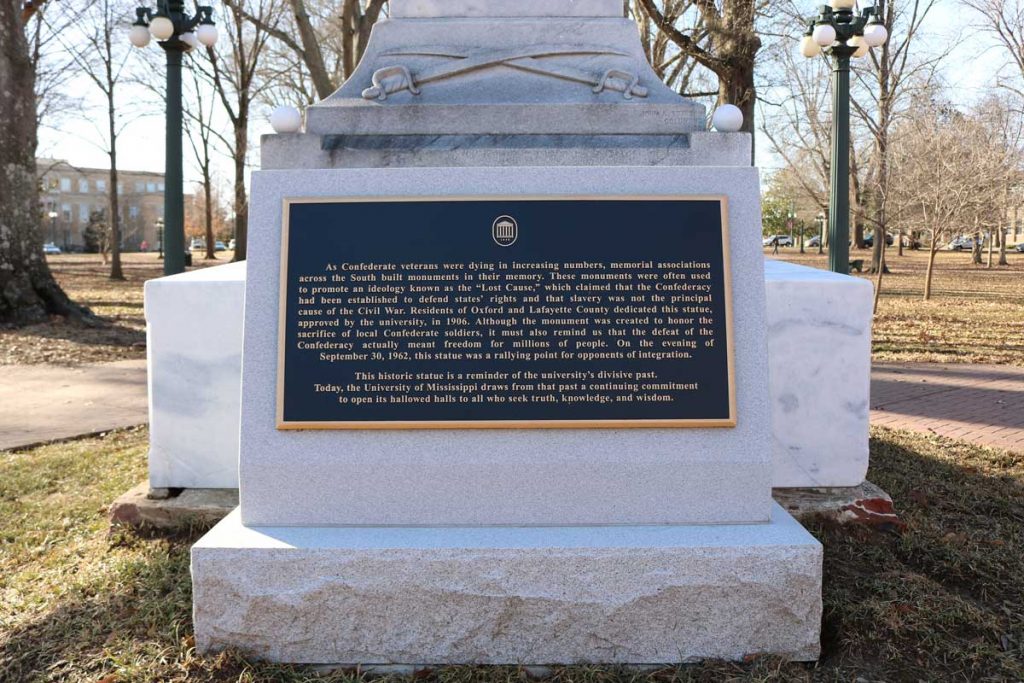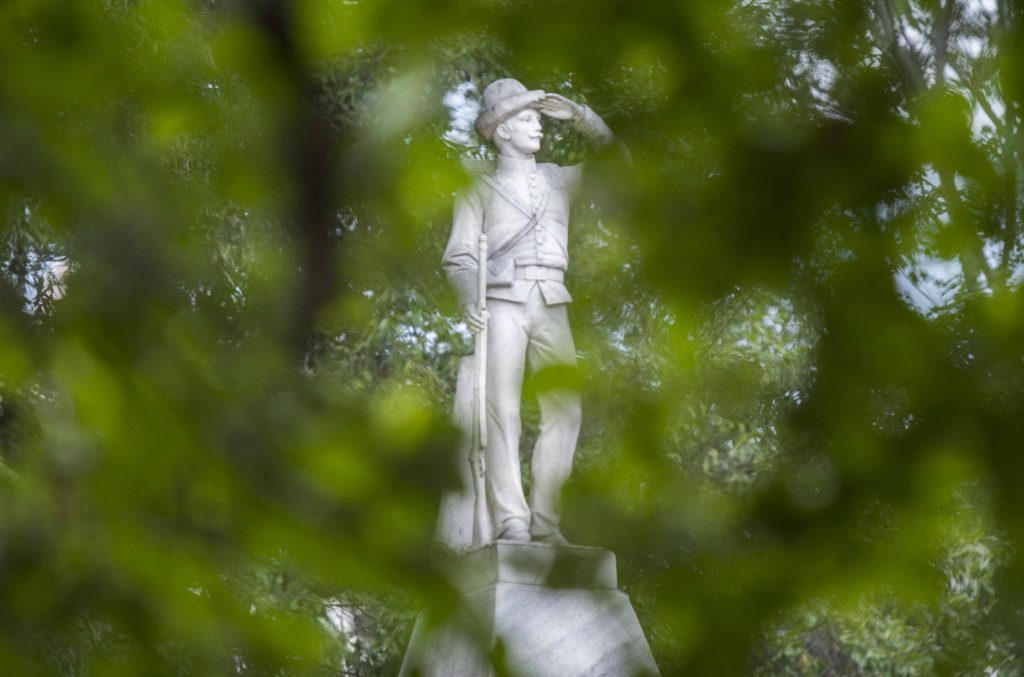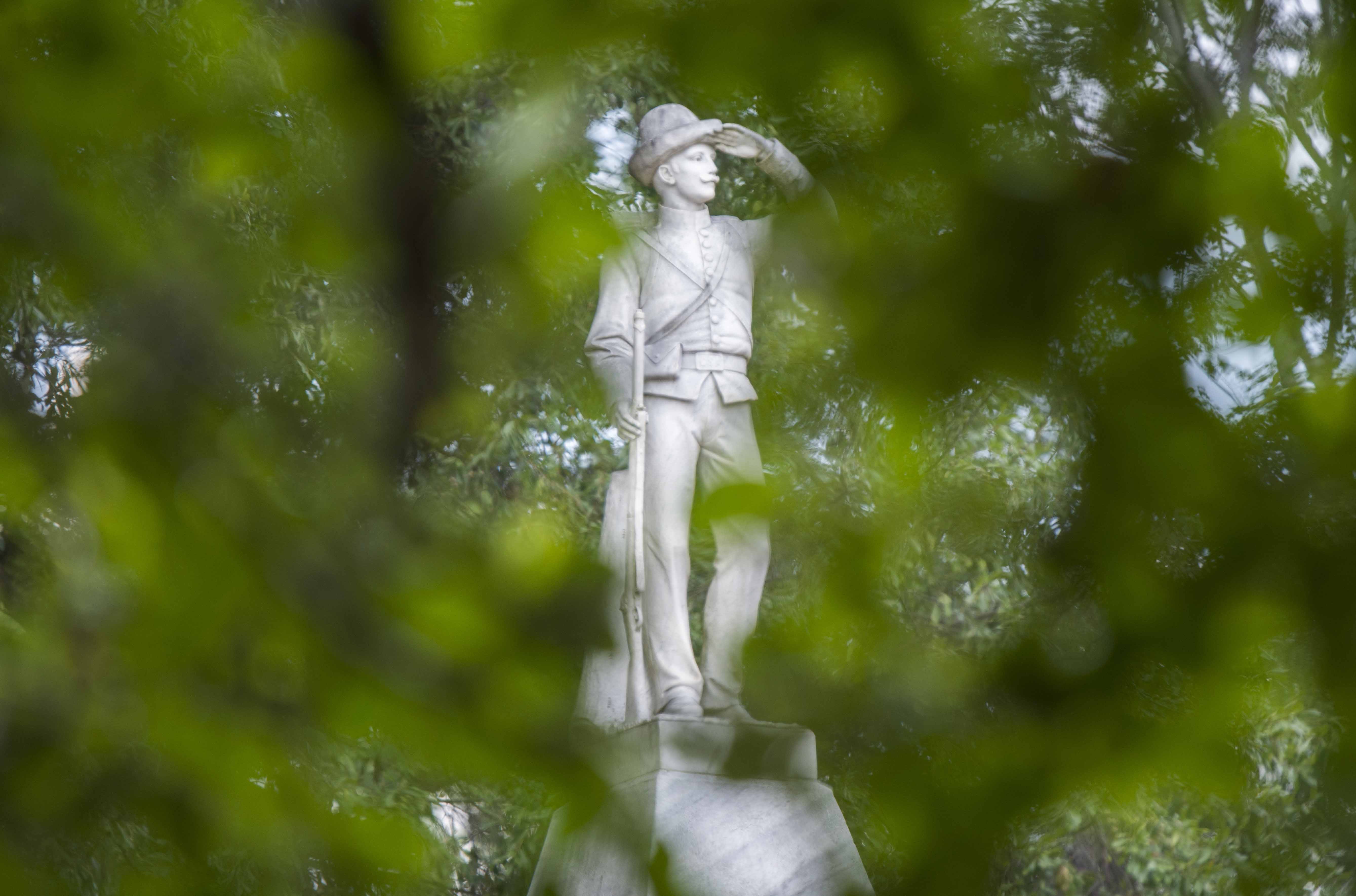The contextualization plaque in front of our school’s Confederate monument is an interesting commentary on university policy.
The plaque discusses the history of such monuments erected across the South in the 20th century and even gives a nod to the fact that they were almost always funded by groups pushing Lost Cause ideology. The Lost Cause, the plaque explains, “claimed that the Confederacy had been established to defend states’ rights and that slavery was not the principal cause of the Civil War.” It explains that the university’s monument was put up by residents of the city of Oxford and Lafayette County in 1906 and that it was a rallying point for white supremacists when James Meredith enrolled in 1962. It also says the Confederacy’s defeat meant freedom for millions of people.

The plaque’s last paragraph is peculiar. After explaining the statue’s racist origins, its purpose of buttressing racist ideology and its co-option by racists, it reads as follows: “This historic statue is a reminder of the university’s divisive past. Today, the University of Mississippi draws from that past a continuing commitment to open its hallowed halls to all who seek truth, knowledge, and wisdom.”
If we give promoters of this contextualization the benefit of the doubt, two conclusions can be reached from this paragraph: either they believe in the Lost Cause to some degree and therefore consider the monument justified, or they wish to use a statue of a Confederate soldier to reflect on the greatest evil in American history.
The former isn’t plausible.
Surely Chancellor Vitter — a son of the South and the head of a university — who has been key to contextualization knows that the Civil War was fought over slavery. One can rest assured that he, like anyone else, has access to the fact that Mississippi Gov. John Pettus lamented impending black Republican politics and free people’s morals shortly after Abraham Lincoln’s election in 1860.
Chancellor Vitter and other higher-ups should know that secession commissioners from the Confederate states traveled to the Upper South to encourage their neighbors to secede, too. Mississippi commissioner William Harris, in a typical statement, reminded his Georgia audience that “our fathers made this a government for the white man.”
And one certainly hopes that he knows that Mississippi’s own Declaration of Secession wasted no time laying out the state’s motivation, which was “thoroughly identified with slavery — the greatest material interest of the world.” Furthermore, it said, “none but the black race can bear exposure to the tropical sun,” which justified this system.
University officials can’t believe the Civil War wasn’t about slavery, then. If they did, they wouldn’t be fit to run a university.
That leaves the second possibility. Do they want the monument to serve as a painful, brooding reminder of slavery and its defenders?
If so, a suggestion: ditch the contextualization plaque and, instead, prop up two more statues. On the left of Johnny Reb can be a wealthy plantation owner, sending him into battle, and on the right, a slave in tattered rags, tilling a field.

Of course the idea is as stupid as it is cruel. Why? Because statues aren’t supposed to remind us of divisive pasts. Statues are built for heroes. Are our heroes are men who died fighting for slavery, regardless of how it is phrased by revisionists?
The answer hasn’t changed since the flag came down. The statue, antithetical to the values its plaque claims to defend, should be removed. Replace it with something honoring real heroes who exemplify liberty, justice and the triumph of the individual over systems of unjust power.
Ryan Oehrli is a junior political science and history major from Washington, North Carolina. He’s the president of the Anti-Confederate Coalition, a student organization that advocates for the removal of Confederate-honoring monuments.
















